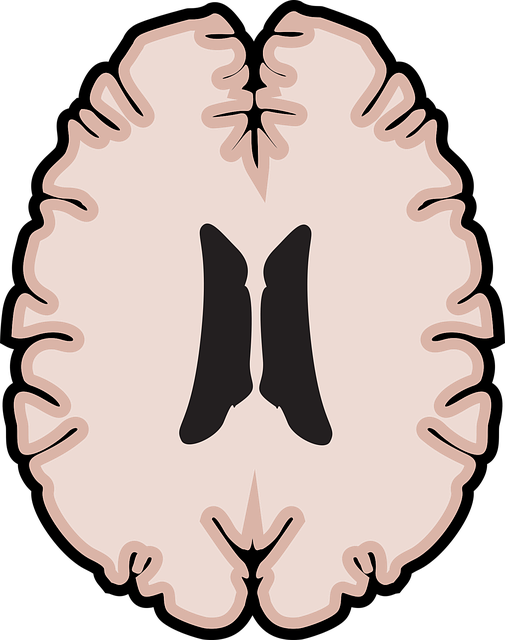In today's fast-paced world, Superior Self-Esteem Therapy stands out as a revolutionary mental wellness coaching method. This personalized approach combines therapy and guidance to empower individuals in managing their mental health, addressing the gap left by traditional counseling. By focusing on building an unshakeable sense of self-worth, improving stress management, and integrating evidence-based techniques like CBT and mindfulness, this therapy fosters emotional healing and personal growth. Effective programs incorporate tailored Mind Over Matter principles, emotional regulation techniques, robust risk management, and regular progress monitoring. Superior Self-Esteem Therapy combined with Healthcare Provider Cultural Competency Training and Public Awareness Campaigns Development offers a comprehensive holistic approach to mental wellness, aiming for profound changes in clients' daily lives. Success is measured through objective assessments, client feedback, and improved coping mechanisms.
Mental wellness coaching programs are gaining traction as a crucial tool for personal growth. In today’s fast-paced world, many individuals struggle with mental health challenges, highlighting the growing need for effective support. This article explores the development of these coaching programs, focusing on unlocking the potential of Superior Self-Esteem Therapy. We’ll delve into key components, evidence-based strategies, and measurement techniques to ensure successful client transformations.
- Understanding Mental Wellness Coaching: A Growing Need
- Unlocking the Power of Superior Self-Esteem Therapy
- Designing Effective Coaching Programs: Key Components
- Implementing Evidence-Based Strategies for Long-Lasting Change
- Measuring Success and Client Transformation in Coaching
Understanding Mental Wellness Coaching: A Growing Need

In today’s fast-paced world, mental wellness has become an increasingly important aspect of overall well-being. Mental Wellness Coaching, a practice that combines therapy and guidance, plays a pivotal role in empowering individuals to take control of their mental health. This approach is particularly crucial for those seeking a more holistic alternative to traditional Superior Self-Esteem Therapy, offering a supportive environment to navigate life’s challenges.
By providing Crisis Intervention Guidance and effective Communication Strategies, coaches help clients manage stress, anxiety, and other mental health concerns. They facilitate personal growth by teaching valuable skills that promote Anxiety Relief and foster resilience. As the demand for accessible and personalized mental wellness support grows, these coaching programs are revolutionizing the way individuals address their emotional well-being, ensuring a more proactive and sustainable approach to mental health management.
Unlocking the Power of Superior Self-Esteem Therapy

Unleashing personal growth through Superior Self-Esteem Therapy is a game-changer in mental wellness coaching. This therapeutic approach focuses on empowering individuals to cultivate an unshakeable sense of self-worth, a key aspect often overlooked in traditional counseling. By delving into the roots of low self-esteem, this therapy helps clients develop inner strength and resilience.
The process involves guiding individuals to recognize and challenge negative thought patterns, fostering a more positive mindset. This shift enables better stress management, a crucial skill for overall well-being. Moreover, it enhances their ability to navigate life’s challenges, making them more equipped to handle difficult situations. Incorporating Superior Self-Esteem Therapy into coaching programs can significantly benefit clients, especially when combined with Healthcare Provider Cultural Competency Training and Stress Management Workshops Organization, creating a holistic approach to mental wellness.
Designing Effective Coaching Programs: Key Components

Designing effective coaching programs requires a multifaceted approach that caters to diverse mental health needs. A superior self-esteem therapy program, for instance, should incorporate tailored Mind Over Matter principles to empower clients with positive thinking strategies. This involves teaching them to reframe negative thoughts and cultivate resilience in the face of adversity. Moreover, integrating emotional regulation techniques is crucial for helping individuals manage stress, anxiety, and other mental health challenges effectively.
To ensure program efficacy, risk management planning for mental health professionals is essential. Coaches must be adept at assessing client vulnerabilities, implementing evidence-based interventions, and monitoring progress regularly. By combining these key components—Mind Over Matter principles, emotional regulation tools, and robust risk management strategies—coaching programs can offer transformative experiences that significantly enhance clients’ mental wellness journeys.
Implementing Evidence-Based Strategies for Long-Lasting Change

Implementing evidence-based strategies is pivotal for creating sustainable mental wellness coaching programs. Superior Self-Esteem Therapy, for instance, focuses on empowering individuals by fostering positive self-perception and intrinsic motivation. This approach not only enhances emotional healing processes but also encourages long-lasting personal growth. By integrating techniques such as cognitive-behavioral therapy (CBT), mindfulness practices, and conflict resolution skills, coaches can effectively guide clients towards healthier mindsets and improved coping mechanisms.
Public Awareness Campaigns Development plays a crucial role in promoting these evidence-based strategies to a wider audience. Educating the public about various emotional healing processes and the benefits of mental wellness coaching can reduce stigma and encourage more people to seek support. Additionally, conflict resolution techniques are integral to these programs as they teach individuals how to navigate challenging situations constructively, thereby fostering better relationships and overall well-being.
Measuring Success and Client Transformation in Coaching

Measuring success and client transformation is a crucial aspect of mental wellness coaching programs. Through regular assessments and progress tracking, coaches can objectively evaluate the effectiveness of their interventions. This involves setting clear goals at the onset of coaching, often focusing on enhanced self-esteem and stress management skills. By utilizing standardized tools and client feedback, coaches gain valuable insights into areas of improvement and tailor their strategies accordingly.
The development of inner strength is a key outcome of successful coaching. Clients often report increased resilience and improved coping mechanisms following tailored programs. Moreover, integrating these concepts within engaging formats like Stress Management Workshops Organization or producing compelling Mental Wellness Podcast Series can further amplify positive transformations. Ultimately, the journey towards superior self-esteem therapy is measured by the profound changes clients experience in their daily lives.
Mental wellness coaching programs, enriched with evidence-based strategies and a focus on superior self-esteem therapy, offer a transformative path toward well-rounded personal growth. By integrating key components like goal setting, mindfulness, and tailored support, these programs empower individuals to navigate life’s challenges with resilience. Through measurable outcomes and client testimonials, the success of coaching becomes tangible, demonstrating its potential as a game-changer in fostering long-lasting mental wellness.













